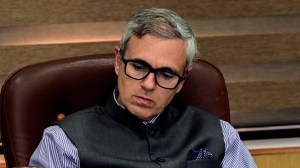Joshi played politics’ to keep lid on report
MUMBAI, August 6: As newshounds sniffed around Mantralaya for Srikrishna Commission report, the state government, entrusted to guard its ...

MUMBAI, August 6: As newshounds sniffed around Mantralaya for Srikrishna Commission report, the state government, entrusted to guard its secrecy, was worried about another set of people – politicians. Within days of receiving the report, the chief minister sent out an order to his officers – politicians of all hues must be kept away from the report. Only top bureaucrats and police officials, handpicked by the CM himself, were trusted with the report’s translation and drafting of the action taken report.
The team comprised Chief Secretary P Subramanian, Additional Chief Secretary (Home) Karun Shrivastava, Principal Secretary (Home, law and order) S K Ayengar, Director General of Police Arvind Inamdar, Commissioner of Police R H Mendonca, Deputy Secretary Rameshchandra Sagar, Principal Secretary (law and judiciary) P S Shah and Principal Secretary (home) G C Tripathi.
However, only four of them actually worked on the ATR and of these only two had access to the complete report – Chief Secretary PSubramanian and Additional Chief Secretary Karun Shrivastava. Others were asked to comment only on the specific observations of the commission. Subramanian and/or Shrivastva used to accompany the report, government’s best-guarded secret for over six months, everywhere – to the chief minister’s bungalow, to meetings and even to the printing press.
Subsequently, when the government decided to translate the report into Marathi, the task was assigned to Food and Civil Supplies Secretary Jairaj Pathak. “None of the junior officials were involved at any stage and that’s how risk of leakage was minimised,” said a senior official requesting anonymity.
When the report was first submitted to Deputy Secretary Radheshyam Mopalwar on February 16, he sealed the two copies in the presence of court officials. Later, the report was handed over to Subramanian who too did not open it till Chief Minister Manohar Joshi gave him the go-ahead.
After Joshi and Subramanian, Venkatchary, the then additional chief secretary(home), was the third person to read the report. Venkatchary then prepared a three-page brief note on the contents of the report for circulation to select officials for information and comments. But, before it was finally decided to table the report, the government had tried its best to put it in the cold-storage. In fact, after it was pointed out that under Section 3 (4) of the Commission of Inquiry Act it was binding upon the government to table the report within six months of its receipt, Joshi and Munde had requested Union Home Minister L K Advani to suspend the particular section. Advani, however, refused.
Sources said even Advani was given only the note prepared by Venkatchary and not the report. Once the reports was printed the copies were kept locked in Shrivastava’s chamber and were taken out only this morning for distribution.
Reactions
It is unfair to reject the report because Justice B N Srikrishna is known for his integrity and impartiality. He wouldn’t draw any conclusion withoutfully considering the facts. He is known to me as a believing and practising Hindu, he wouldn’t be partial to any community . His remarks about Thackeray are based on facts and evidence.
Those who are guilty should be tried on the lines of Nuremberg’s Trial which had booked the Nazis after World War-II. It is not unusual for the state to reject the report by claiming it is biased. That the report was actually tabled in the house is surprising.
The state may enjoy power not to follow the recommendations of a commission, but whether excercise of such powers would be justified or otherwise will be judged by the people’s court.
Let’s wait. We should not get provoked as that’s dangerous. Let opinions be formed peacefully.
The report is impartial. The party in power cannot ask for a report in its interest. By rejecting the report, the alliance government shows it is not fit to be in power. The Shiv Sena wants a partisan report.
The rejection of the Srikrishna report by the state government is akin to theNazis rejecting the Nuremberg Trial after the holocaust. But we (like-minded people) will not let them get away with it. We will seek justice for the aggrieved, the guilty have to be punished.
The rejection of the Srikrishna report by the government was expected. But the report is fair. The government wanted to politicise the report by accepting it in parts. They accepted those parts which spoke about infighting within the Congress, but rejected those which went against them. The report has only put an imprimatur on the widely-held beliefs of people.







- 01
- 02
- 03
- 04
- 05
























